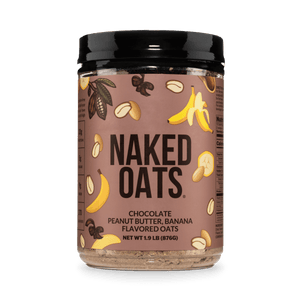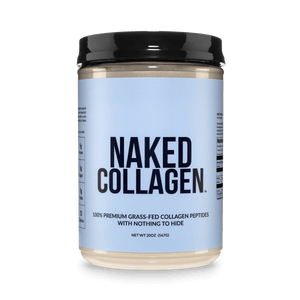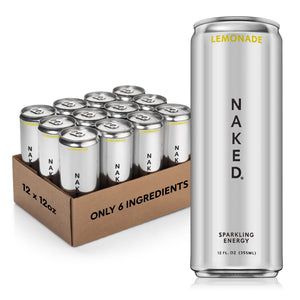Many people are striving to get the most out of their workouts to help them look and feel their best. People tend to largely focus on their pre-workout meal, but are you giving enough time and attention to your post-workout nutrition?
An important part of making the most of your workout routine is ensuring appropriate nutrition afterward. This article will explain the benefit of protein after exercise, as well as when and how much to include so you can best replenish and refuel your body.
The Benefit of Protein After a Workout
Exercise often causes some of the protein in your muscles to break down. Athletes of all kinds experience muscle protein breakdown, but the rate at which this happens often varies depending on the hype of exercise and level of intensity.
After a workout the body works to rebuild and regrow muscle proteins, which is largely influenced by the dietary protein we consume after exercise. Protein from food and beverages gives the body amino acids necessary to repair muscles and also build new muscle tissue.
Ultimately, consuming protein after a workout helps the body reduce muscle protein breakdown, increases muscle growth, and enhances overall recovery.
How Long After a Workout Should I Eat Protein?

There is some varying research to suggest when exactly is the best time to consume protein after a workout.
Some experts recommend eating protein after your workout within 45 minutes for optimal muscle recovery and gains.
However, some research suggests that waiting even up to a few hours to consume protein after a workout can still be effective (1).
Largely, research continues to point to the benefits of consuming a protein-rich meal or snack within 30-60 minutes of exercise for optimal results. After all, the body is most suited to utilize protein and repair muscle fibers during the first hour after exercise.
How Much Protein Should I Eat After a Workout for Optimal Recovery?
How much protein you should eat after a workout mainly depends on the intensity and type of exercise, as well as your body’s overall protein needs.
It’s recommended that you consume about 0.3-0.5 grams of protein per kilogram of body weight within an hour of a workout. Therefore, someone weighing 150 pounds would need about 20-34 grams of protein after a workout.
In general, a good rule of thumb is to aim for anywhere between 20-40 grams of protein after exercise to maximize the body’s ability to repair damaged muscles and grow new muscle tissue.

If you’re wondering how your post-workout protein fits into your overall daily protein needs, it’s important then to take a look at how much protein you should be consuming on a daily basis.
According to the Dietary Reference Intakes, adults need about 0.8-1.2 grams of protein per kilogram of body weight daily. A person who weighs more will therefore need more protein to meet their needs.
However, this doesn’t necessarily mean you should have more protein after your workout, but rather, you should aim to eat protein more frequently throughout the day. It’s important to keep in mind that the body can really only utilize about 25-35 grams of protein at one time anyway (2).
Should I Combine Carbs or Fat With Post-Workout Protein?
After exercise, in addition to repairing muscle tissue, the body works hard to replenish glycogen stores. Fueling the body appropriately is necessary to encourage this process. Consuming just protein after exercise would help the muscle fibers repair but would leave the body’s glycogen stores depleted.
The body’s glycogen stores are used as the primary fuel source during exercise and the way to replenish these stores is by consuming carbohydrates. Certain exercises will cause the body to utilize more glycogen, which means the body will need more carbohydrates after the workout. For example, in intense endurance exercise, the body uses more glycogen than in weight training.
Ultimately, regardless of the type of exercise you’re doing, consuming both carbohydrates and protein afterward can help optimize protein and glycogen stores.
You already know how much protein you should consume after a workout, but you might be wondering how many carbs you should have in addition. A good rule of thumb is to consume a ratio of 3:1 carbs to protein. Therefore, if your post-workout fuel contains 25 grams of protein, you should also aim for 75 grams of carbohydrates.
However, keep in mind that how much whey protein per day, and total carbs, might vary depending on your needs and goals.
Some Easy Post-Workout Protein Ideas

There are several ways to easily get protein in after a workout. There are several protein bars and shakes on the market that you can easily toss in your gym bag for a no-brainer post-workout snack.
If you have more time, you might choose to fuel your body with a meal including high-quality protein foods such as eggs, yogurt, chicken, turkey, or fish, for example.
However, if you’re frequently on-the-go it often makes the most sense to opt for a quick and easy option.
Clear Naked Whey is a great option for a refreshing high-quality post-workout beverage. Simply shake it with cold water and it’s ready to enjoy.
It’s not only refreshing, but it’s also made from 100% whey protein isolate and contains 3.8 grams of branched-chain amino acids – both of which have been shown to improve muscle growth and recovery.
Final Thoughts
To make the most of your workout and properly fuel your body, consuming protein afterward is key.
Protein is essential to help both repair damaged muscle proteins and build new muscle tissue. Aim to consume a protein-rich post-workout meal or snack within 60 minutes after exercise.
In addition to protein, it’s important to consume adequate carbohydrates after exercise to optimize your body’s glycogen stores, improve recovery, and enhance performance for your next workout.













